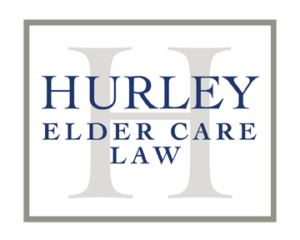Estate Planning
This is the year for finally getting your estate plan done! We know that most adults put off estate planning. The whole thing can seem unnecessary, overwhelming, and expensive. Our aim is to show you that estate planning does not have to complicated, expensive, or stressful. This week and for the next several weeks,…
Read MoreLet’s make this the year you finally tackle some of those tasks that you’ve been putting off. At the top of your New Year’s resolution list should be your estate plan. Most adults put off estate planning for several reasons: 1) It seems overwhelming and confusing; 2) It seems terribly complicated and expensive; 3)…
Read MoreIt’s unbelievable, but 2019 is almost over. As we approach the new year, it’s time to start thinking about new year’s resolutions. This year it’s time to make estate planning a part of your new year’s resolutions. Like most people, you’ve probably been putting off your estate planning. It can seem too confusing, too expensive,…
Read MoreThere are many legal terms for the roles we can play in an older adults life. Have you ever been asked if you are the guardian or the power of attorney for someone? What does it mean when you hear that someone is the executor or trustee for someone else? How about conservator—what is that?…
Read MoreFor married couples, updating wills and beneficiary designations are important parts of Medicaid planning. Most of our clients have “I Love You” wills that leave everything to their spouse after their death. Likewise, their assets have their spouses as the Payable on Death Beneficiaries. This can be a huge issue if the spouse is receiving…
Read More“Do I need to update my will? My situation is very straightforward, and I don’t think anything has changed.” We are often asked this question, and everyone hopes that the answer is: “No—whatever you put in place 15 years ago is probably still fine.” Unfortunately, there are many reasons your will might need to be…
Read MoreWe often hear from family members that assume it’s too late for their loved one to create and sign a new will because the person has dementia. Yes, at some point in the disease process, a person living with dementia will lose the capacity to sign legal documents. Having a diagnosis of dementia, however, does…
Read MoreIf you own property in different states (say you live in New York but winter in Florida or live in Georgia but have family property in Ohio), your estate could be complicated for those that survive you one day. Real estate is governed by the laws of the state in which it is located, not…
Read MoreWe hear this question quite a bit. An individual will call us asking, “Do I really need a will? My situation is really simple, and I don’t really own that much.” A will is a device that lets a person control who you want to give your assets to. Die without one, and the state…
Read MoreIt is important to keep in mind that not all assets are affected by the terms of a will. Bank accounts, trusts, and retirement accounts that have designated beneficiaries transfer to the beneficiaries; these assets never go through probate if they have another way of being transferred. Likewise, certain properties can be transferred to co-owners…
Read MoreSubscribe to our blog and monthly newsletter.











